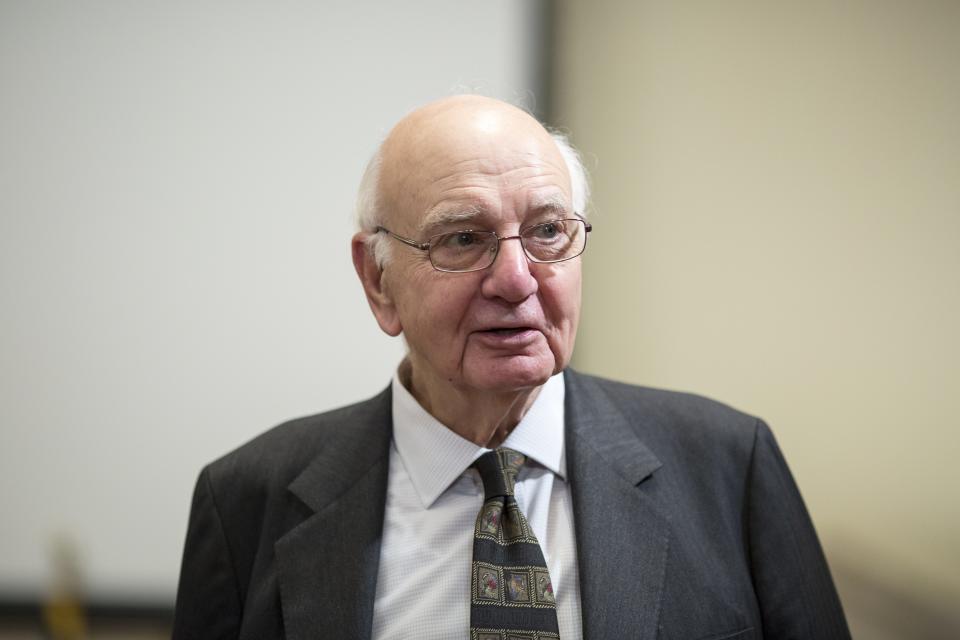Paul Volcker, former Fed Chairman who tamed high inflation in the 1980s, dies at 92
Former Federal Reserve Chairman Paul Volcker, known for taking dramatic steps to rein in America’s runaway inflation in the 1980s and pushing Wall Street reforms in the aftermath of the financial crisis, has died at 92.
President Jimmy Carter tapped the towering 6-foot-7 Volcker to be the Fed’s chairman in 1979 when the U.S. economy was facing runaway inflation. Volcker, who headed the central bank until 1987, pushed interest rates to historic highs to tame inflation and bring down consumer prices, triggering a recession.
The decision, which was unpopular among many Americans at the time, helped curb inflation, and the economy eventually rebounded.
“Paul was as stubborn as he was tall, and although some of his policies as Fed chairman were politically costly, they were the right thing to do,” Carter said in a statement Monday. “His strong and intelligent guidance helped to curb petroleum-driven inflation, easing a strain on all Americans’ budgets.”

Fed watch: How do changes to borrowing costs affect your finances?
Lower rates: Here's what you should do next with your 401(k)
Volcker stuck with his policies in the face of opposition, asserting the Fed’s independence from political and public interference, experts said.
Ray Dalio, an American billionaire investor and founder of the world's largest hedge fund, Bridgewater Associates, told USA TODAY that Volcker was the “greatest economic giant” the world has seen for more than the past half century. Volcker's contributions to the world economy were beyond just taming inflation, he said.
“Paul Volcker was the greatest American hero that I’ve known,” Dalio said, remembering his friend of two decades. “He has shown unwavering character and capability for the service of our country and the world by doing the right and difficult things rather than doing the expedient and partisan ones.”
The Volcker-led victory over inflation is widely credited with beginning what economists call the “Great Moderation’’ – more than two decades of mostly steady economic growth, relatively low unemployment and modest price increases. The Great Moderation ended with the Great Recession of 2007-09.
“Paul Volcker was a giant – literally and figuratively – in monetary policy,” said Greg McBride, chief financial analyst at Bankrate. “We enjoy low inflation and have enjoyed more than three decades of falling interest rates because he had the backbone to aggressively raise interest rates to break inflation.”
In the decades after his time as Fed chairman, President Barack Obama chose him as an economic adviser when he took office after the financial crisis of 2008. He pressed for lawmakers to impose new restrictions on big banks, a regulation known as the “Volcker Rule” that was included in a far-reaching financial overhaul bill that Congress passed in 2010.
Fed Chairman Jerome Powell, in a statement Monday, said that Volcker's contributions to the country left a "lasting legacy."
"His life exemplified the highest ideals – integrity, courage and a commitment to do what was best for all Americans," Powell said.
Contributing: Paul Wiseman and Christopher Rugaber, The Associated Press
This article originally appeared on USATNetwork: Paul Volcker, former Fed Chairman who tamed inflation, dies at 92

